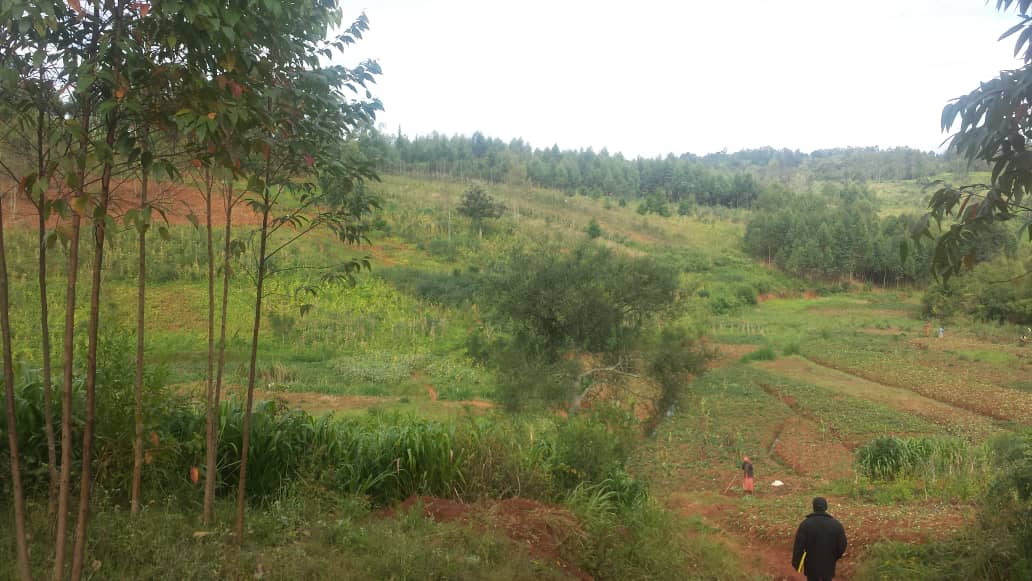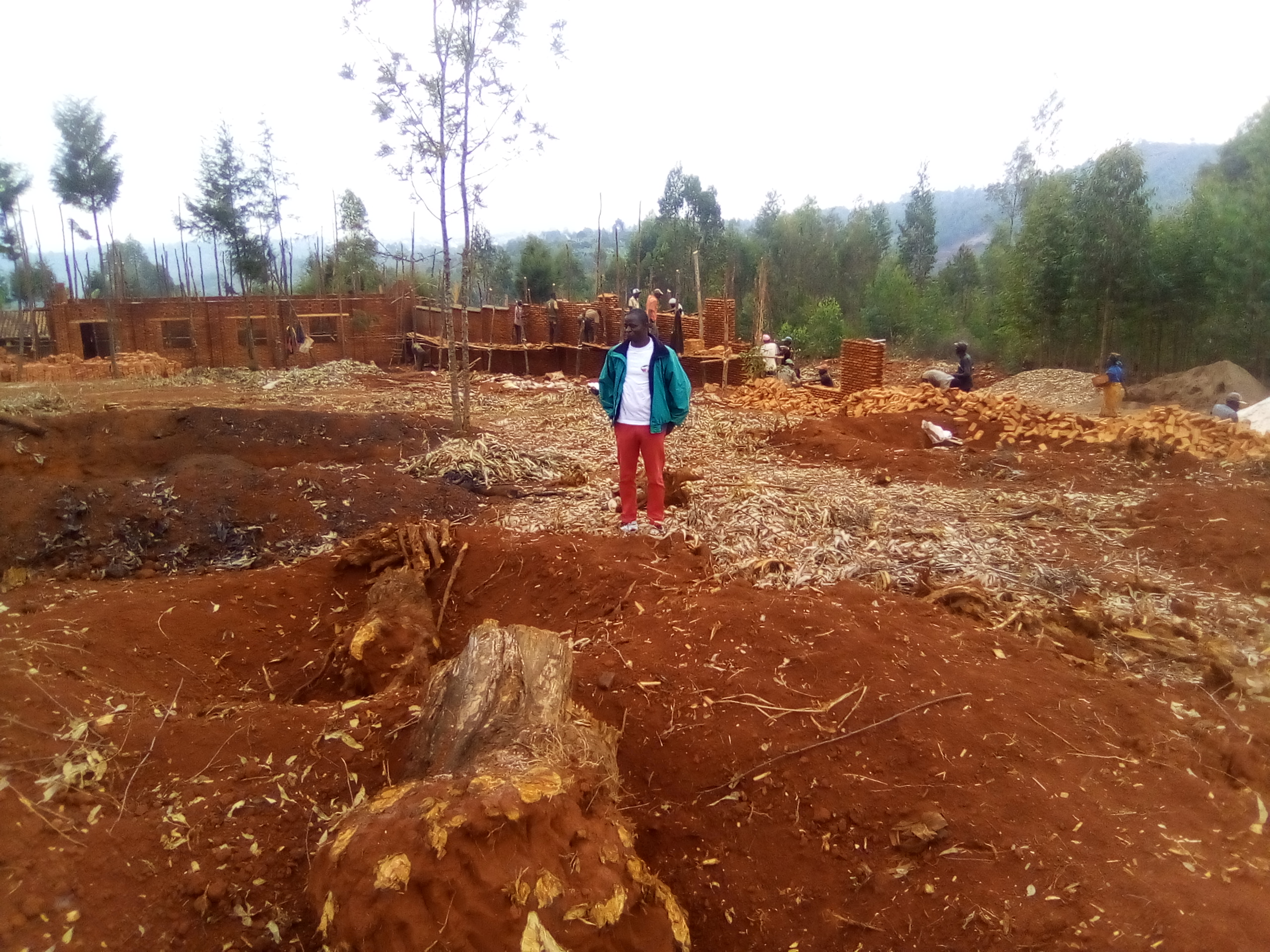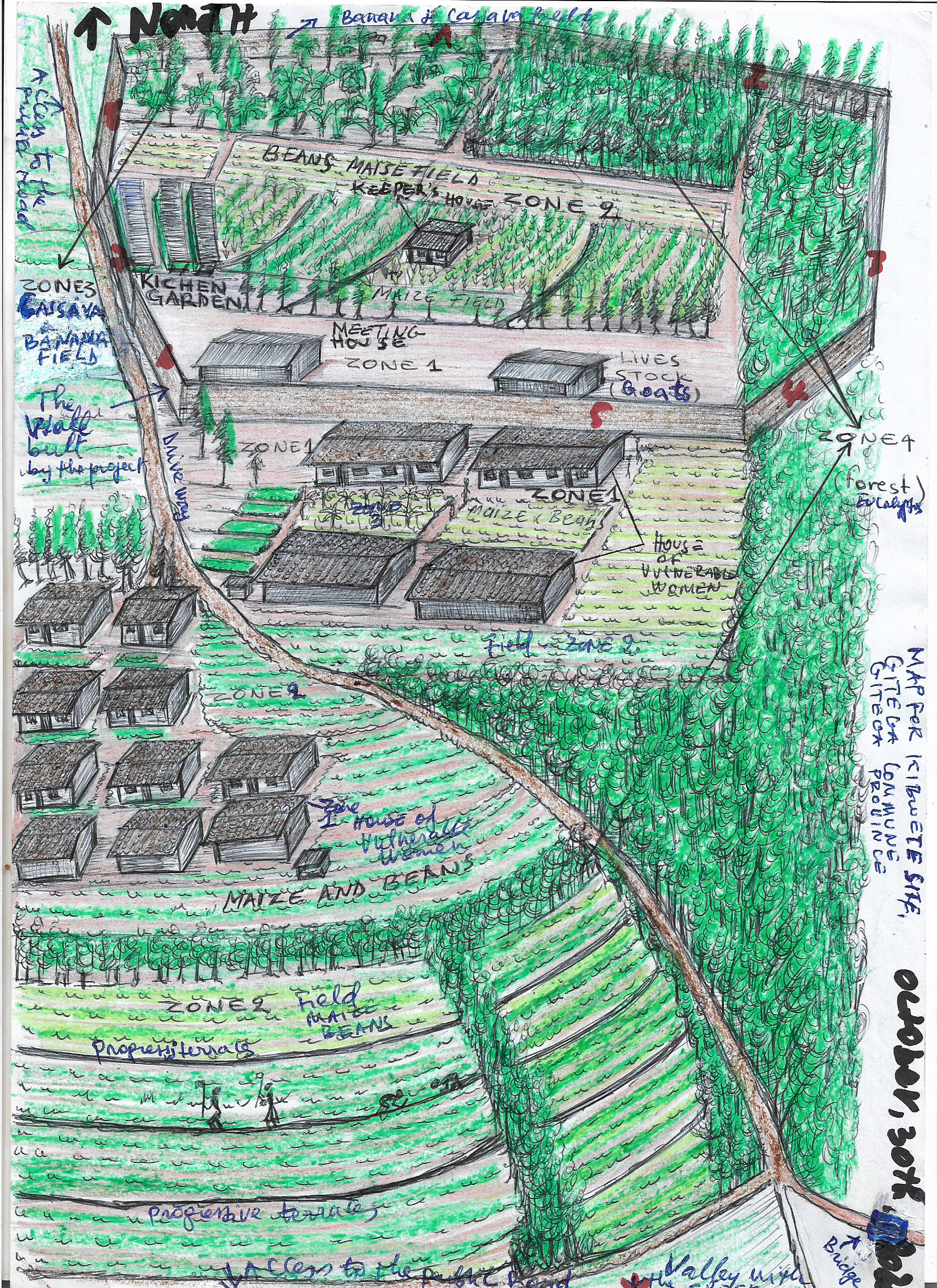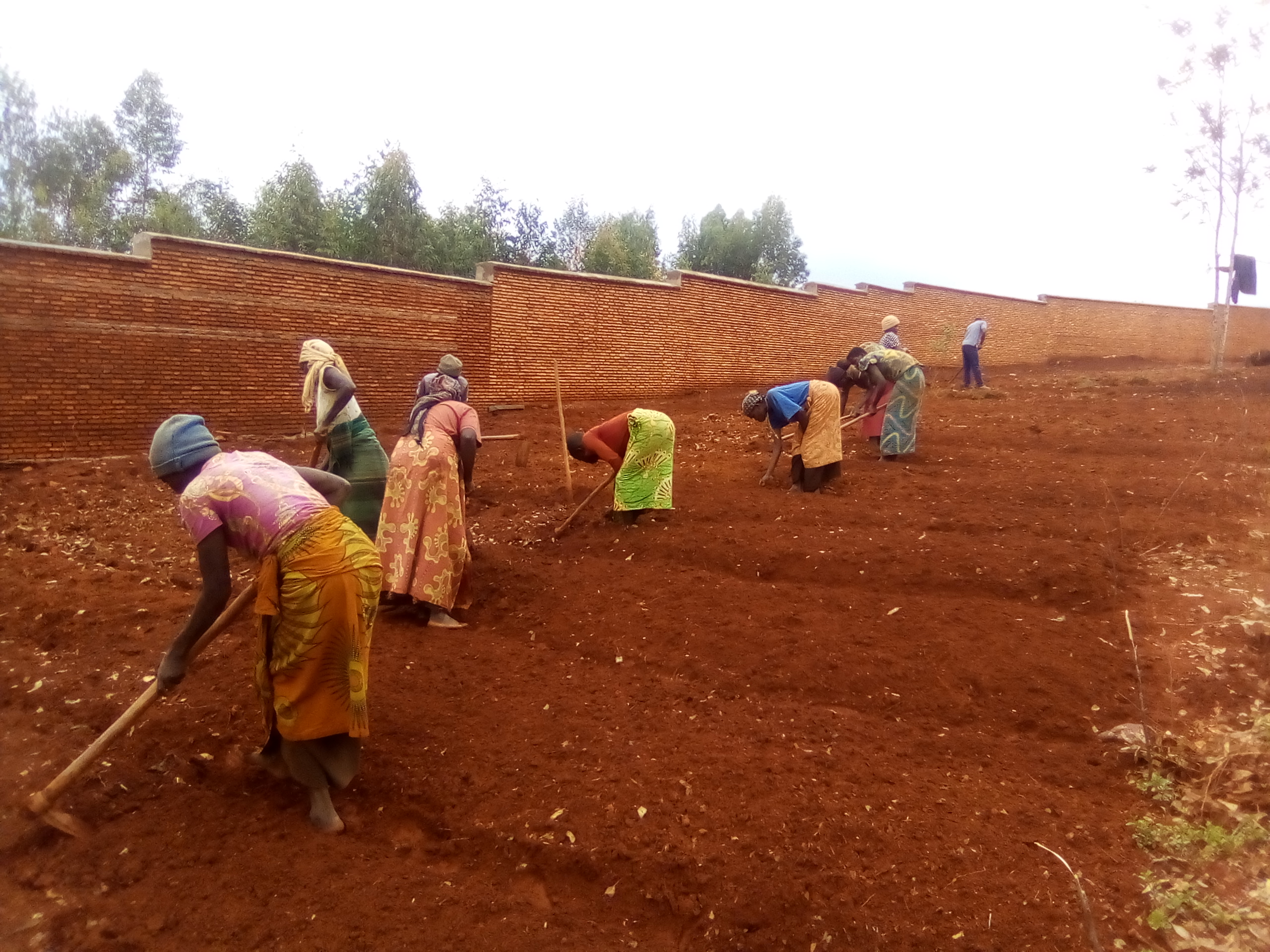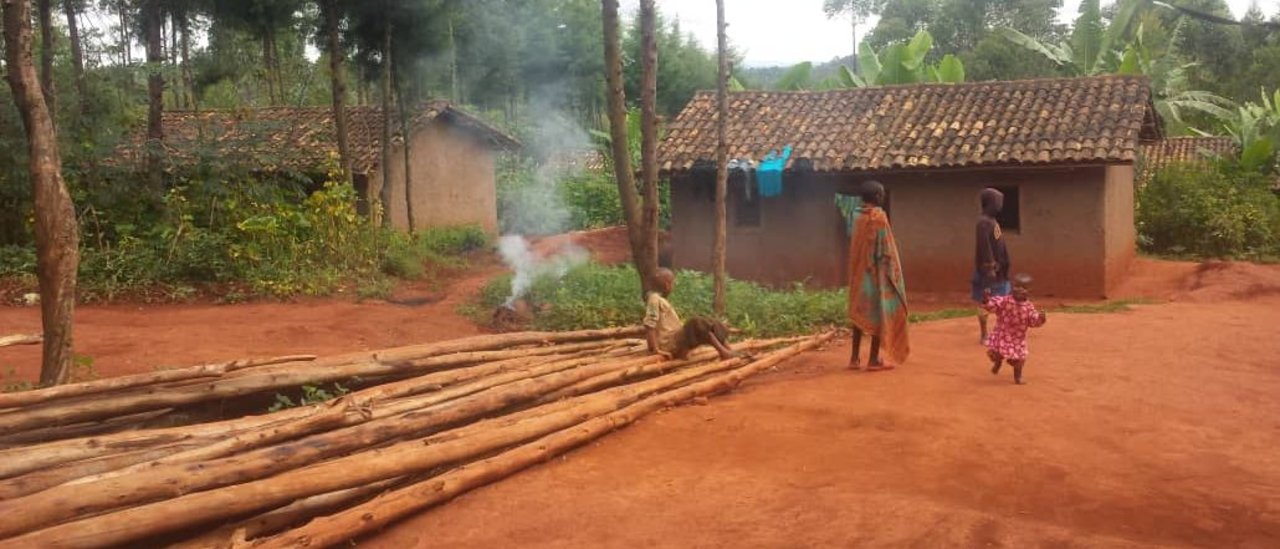
Let nature take effect: News from the permaculture project in Burundi
On September 14, the kick-off workshop for the project "Establishment of an Agricultural Social Education and Training Center in Gitega, Burundi" took place. Corona did not pass without leaving its mark on the project start: all project partners involved got to know each other in a virtual setting.
For political reasons, German development work in this poverty-stricken country in East Africa has come to an almost complete standstill in recent years. Nevertheless, the state of Baden-Württemberg is sticking to its decades-long partnership. The project is funded by the Ministry of Rural Areas and Consumer Protection Baden-Württemberg (MLR) and runs until December 2021. During this time, a 5-hectare area near the capital Gitega will be gradually converted into an agro-ecological and social education center with a teaching garden.
The planning and transformation of the area is based on the ethical and design principles of permaculture, an alternative and sustainable form of agriculture. The project area is transformed on the basis of a detailed permaculture design, which is graphically recorded on a jointly developed map model. This essential step serves as a blueprint and orientation for the coming work steps and is intended to ensure the success of the project right from the start.
Project partner Father Walter Stärk has already been able to achieve a great deal as a missionary work in Burundi in last decades. Within the framework of this project, he acts as a bridge between Baden-Württemberg and Burundi, based on his experience with both cultures and environmental settings. Furthermore, AKI was able to win two experts in the field of tropical permaculture, one from Burundi and the other from neighboring Congo.
Although AKI, with project managers Markus Roßkopf and Julia Fendel, has experience in permaculture, the local conditions in tropical Burundi are significantly different from those in Central Europe in terms of climate, soil, and ecology. Due to the current travel restrictions, AKI is not able to visit and cooperate on site. Therefore, various online tools are used to implement the necessary tasks with the local project partners. The central component of this digital cooperation is the biweekly Jour Fixe.
In spring 2022, the future project partners will be familiarized with and taught the principles and methods of alternative forms of agriculture in a two-week course (Permaculture Design Course). In addition to farmers, local students and marginalized groups in the sense of inclusion, such as orphaned children and widowed women, will also be included in future activities.
After the end of the project, the Agri-social Education and Training Centre will be run by the Christian community "Camelius" and the primary and secondary school "St. Kizito". Until then, the area will be converted according to the ecological conditions and local needs and the organizational infrastructure for a sustainable utilization and administration concept will be established under the project coordination of AKI.
Supporters wanted
AKI and its project partners depend on and are always grateful for financial support from third parties. All donations flow 100% into the project. For an upcoming school camp, shovels, picks, etc. need to be purchased in the coming weeks. Your support would make us, our project partners in Burundi and the affected students very happy!
